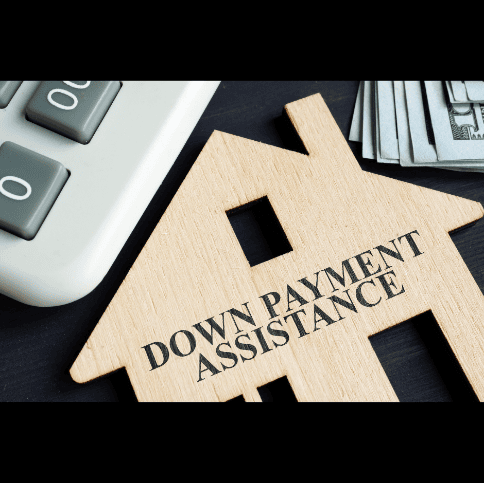It’s not the best housing market, especially for first-time buyers. Interest rates and building costs are high. Does that mean taking the plunge is out of the question for those who have never owned a home? No, but you may need to consider combining multiple financing strategies. The good news is that participants in the Midtown Redevelopment Authority/Center for Civic and Public Policy Improvement affordable housing program have expanded access to financing opportunities as the housing market tightens.
Down payment assistance
 One of the primary barriers to homeownership is the hefty down payment required to secure a mortgage. Down payment assistance programs, often administered by government agencies or nonprofit organizations, provide financial support to homebuyers. These programs can cover a portion or even the entire down payment, allowing individuals and families to enter the housing market with less financial strain. In addition, lenders are sometimes willing to offer mortgages with no down payment.
One of the primary barriers to homeownership is the hefty down payment required to secure a mortgage. Down payment assistance programs, often administered by government agencies or nonprofit organizations, provide financial support to homebuyers. These programs can cover a portion or even the entire down payment, allowing individuals and families to enter the housing market with less financial strain. In addition, lenders are sometimes willing to offer mortgages with no down payment.
Closing cost assistance
Closing costs, which include fees for services like appraisals, inspections, and title insurance, can add a substantial sum to the overall home cost. Closing cost assistance programs work similarly to down payment assistance, offering financial aid to cover these expenses. This support lightens the out-of-pocket financial responsibility for homebuyers and makes it easier for them to transition from renting to owning.
Land subsidies
MRA offers builders of affordable housing access to vacant lots in Houston’s Third Ward either for free or at prices far below market value. For example, the cost for a lot worth $100,000 could be as little as $1,500, leaving builders with more money to offset rising prices on construction materials.
Land trusts
 Emerging during the civil rights movement, land trusts are a unique method for keeping home prices affordable when property values are rising. A nonprofit organization acquires and holds the land while a buyer purchases the home situated on that land. Homeowners build equity in the structure while leasing the land. The impact is a reduction in the overall cost of homeownership.
Emerging during the civil rights movement, land trusts are a unique method for keeping home prices affordable when property values are rising. A nonprofit organization acquires and holds the land while a buyer purchases the home situated on that land. Homeowners build equity in the structure while leasing the land. The impact is a reduction in the overall cost of homeownership.
Land trusts usually have resale restrictions to ensure the property remains affordable for future buyers. This perpetual affordability model protects homeowners from displacement that follows speculative real estate investment trends and gentrification.
Down payment assistance, closing cost assistance, land subsidies, and land trusts help make homeownership accessible and affordable for a broader range of buyers. They enable more individuals and families to achieve the American dream of homeownership and help create neighborhood stability.
Signing up for a homebuyer education course is the first step in the homebuying process. Find more about the MRA/CCPPI affordable housing program, hear testimonials from recent homebuyers, and meet our builders here.